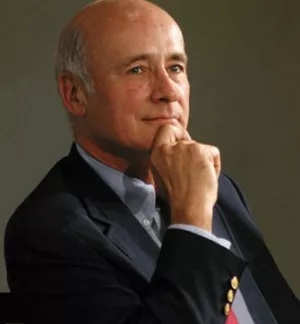Note
Reprinted from The Wall Street Journal Asia © 2006 Dow Jones & Company, Inc. All rights reserved.
The United States was noticeably absent from the guest list when countries from Australia to India gathered recently in Malaysia for the first East Asian Summit. It was a meeting which some fear marks the first step in China's long-term ambition to build a new regional power structure, known as the East Asian Community, that excludes Washington. Couple that with a recent BBC poll of 22 countries, which found that nearly half the respondents saw Beijing's influence as positive compared to 38% who said the same for the U.S., and it is clear that the rise of China's soft power — at America's expense — is an issue that needs to be urgently addressed.
While recent U.S. Congressional reports have focused on the rise of China's economic and military power, far less attention has been paid to the rise of China's soft power. Yet in a global information age, soft sources of power such as culture, political values, and diplomacy are part of what makes a great power. Success depends not only on whose army wins, but also on whose story wins.
China has always had an attractive traditional culture, but now it is entering the realm of global popular culture as well. Chinese novelist Gao Xingjian won China's first Nobel Prize for Literature in 2000, and the Chinese film "Crouching Tiger, Hidden Dragon" became the highest grossing non-English film. Yao Ming, the Chinese star of the U.S. National Basketball Association's Houston Rockets, is rapidly becoming a household name, and China is set to host the 2008 Summer Olympics. The enrollment of foreign students in China has tripled to 110,000 from 36,000 over the past decade, and the number of foreign tourists has also increased dramatically to 17 million last year. China has created 26 Confucius Institutes around the world to teach its language and culture, and while the Voice of America was cutting its Chinese broadcasts to 14 from 19 hours a day, China Radio International was increasing its broadcasts in English to 24 hours a day.
In terms of political values, the era of Maoism (and Mao jackets) is long past. Although China remains authoritarian, the success of its political economy in tripling gross domestic product over the past three decades has made it attractive to many developing countries. In parts of Asia, Africa and Latin America, the so-called "Beijing consensus" on authoritarian government plus a market economy has become more popular than the previously dominant "Washington consensus" of market economics with democratic government. China has reinforced this attraction by economic aid and access to its growing market.
China has also adjusted its diplomacy. A decade ago, it was wary of multilateral arrangements and at cross purposes with many of its neighbors. Since then, it has joined the World Trade Organization, contributed more than 3,000 troops to serve in United Nations peacekeeping operations, become more helpful on nonproliferation issues (including hosting the six-party talks on North Korea), settled territorial disputes with its neighbors, and joined a variety of regional organizations. This new diplomacy, coupled with the slogan of "China's peaceful rise," helps to alleviate fears and reduce the likelihood of other countries allying to balance a rising power.
But just as China's economic and military power is far from matching that of the U.S., China's soft power still has a long way to go. China does not have cultural industries like Hollywood, and its universities are far from the equal of America's. It lacks the many non-governmental organizations that generate much of America's soft power. Politically, China suffers from corruption, inequality, and a lack of democracy, human rights and the rule of law. While that may make the "Beijing consensus" attractive in authoritarian and semi-authoritarian developing countries, it undercuts China's soft power in the West. Although China's new diplomacy has enhanced its attractiveness to its neighbors in Southeast Asia, the continuing belligerence of its hard power stance toward Taiwan hurt it in Europe in early 2005. China's efforts to persuade the Europeans to relax an embargo on the sale of arms imposed in the aftermath of the 1989 Tiananmen Square massacre foundered after its enactment of an anti-secession law mandating the use of force against Taiwan.
Nonetheless, although China is far from America's equal in soft power, it would be foolish to ignore the gains it is making. The declining poll results and Washington's absence from the East Asian summit are warning lights. It is time for the U.S. to pay more attention to the balance of soft power in Asia.
Mr. Nye is a professor at Harvard and author, most recently, of "The Power Game: A Washington Novel." (PublicAffairs 2004).
Nye, Joseph. “The Rise of China's Soft Power.” Wall Street Journal Asia, December 29, 2005





